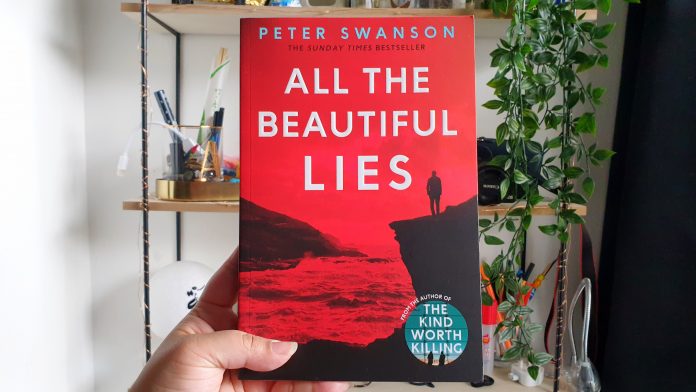Tile: All the Beautiful Lies
Author: Peter Swanson
I’ll be honest, I’ve had to spend a while reflecting on this book before writing about it.
All the Beautiful Lies arrived as the third in my box of stories back in January, and though I was excited by the notion of a new book, I was entirely hesitant because of the blurb which read:
Harry Ackerson has always considered his stepmother Alice to be sexy and beautiful, in an “otherworldly” way.
I am totally aware of the world out there where the taboos of incestuous relations are normalised and in fact considered a fetish, but it still ruffles my feathers and makes me feel more than a little uncomfortable. That been said, in keeping with my motto this year to explore as many genres as possible, I let myself sink my teeth into this book and surprisingly enough, it was easier to do than I expected.
Swanson writes in a split narrative in this book which seems confusing at first, but as the story develops and the plot thickens, makes sense. It is sold as a “clever tale of obsession, revenge, and cold-blooded murder” but really, it is a poignant book which follows the stories of several individuals at once and uses the split narrative to understand who they are and how they came to be the people that they are. It tells the tale of trauma and how deeply ingrained it can become in our daily lives. It paints an unsettling picture of the people we meet in our everyday lives and how easily we disregard the actions we deem to be improper as nothing but a lack of correct socialisation.
All the Beautiful Lies, while yes, is very much a gripping thriller, is mostly a harrowing tale of the cycle of intergenerational trauma and how unbreakable it is when you have no knowledge of other realities outside of your own. If ever there was a book to understand behaviours as a communication of need rather than an involuntary response, albeit in an unsettling manner, this is it.
I wouldn’t recommend this book if you are easily unsettled, but if you are willing to look past the taboos and read it with an understanding of the characters as real people, you will thoroughly enjoy this read – of course, it should be noted that I use the word enjoy here very lightly and mean it more as literary appreciation rather than an indulgence and enjoyment of the literary arts.

